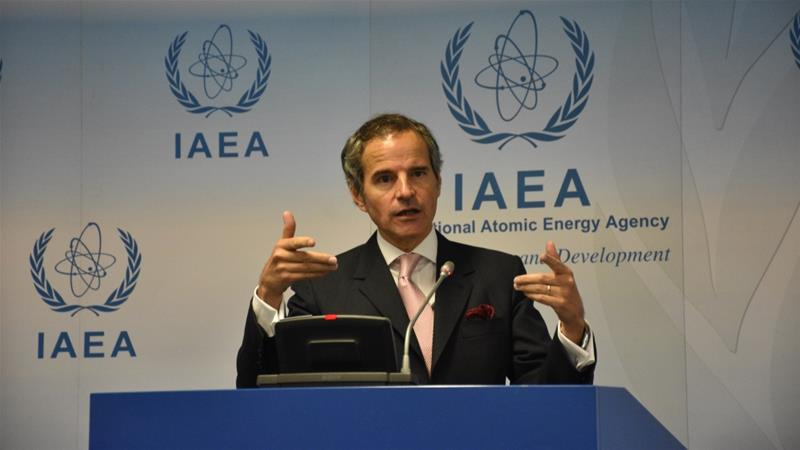MP: IAEA’s anti-Iran resolution a political game

The resolution of the Board of Governors of the International Atomic Energy Agency (IAEA) against Iran is a political game, said a member of the Iranian Parliament’s National Security and Foreign Policy Committee.
Speaking in an exclusive interview with Iran Daily, Sara Fallahi added that Iran can adopt different approaches in the face of this political game, among which is pulling out of the Joint Comprehensive Plan of Action, signed between Tehran and the P5+1 in July 2015.
On June 19, the IAEA’s Board of Governors approved, with 25 votes in favor, an anti-Iran resolution proposed by France, Britain and Germany – all parties to the JCPOA, demanding Tehran to provide the agency’s inspectors with close access to two of its nuclear sites, to “fully cooperate” with the IAEA and “satisfy the agency’s requests without any further delay.”
The resolution was strongly rebuffed by China and Russia, the other two signatories to the nuclear accord. Seven countries of Thailand, Mongolia, Niger, South Africa, India, Pakistan and Azerbaijan abstained from voting. This was the IAEA’s first resolution against the Islamic Republic since 2012.
The IAEA’s demand for investigation came two years after the Israeli regime claimed Tehran had been working on a nuclear weapon, something that Tehran has strongly denied.
Time and again, Iran has said its nuclear program is only for peaceful purposes.
The Islamic Republic of Iran says the atomic agency’s report lacks credible legal reasoning and is politically motivated.
Reiterating that the resolution is politically motivated, Fallahi said it has not been issued on the basis of legal and technical matters as Iran has been cooperating with the IAEA for years and they have not been able to find any legal or technical excuses for questioning this collaboration.
She added that this resolution is an advantage and mileage for the Israeli regime and the US as it gives them more room to maneuver on the issue of the arms embargo on Iran by the United Nations Security Council (UNSC) and prevent the international community from ending it with only a few months to the expiration date (in October).
The UNSC’s arms embargo on Iran was imposed in 2007, prohibiting the country from selling or purchasing armaments. The embargo, however, will expire in October as per an agreement between Tehran and the P5+1 during the nuclear talks, which led to the signing of the JCPOA, and based on UN Resolution 2231.
This comes as the expiration date is approaching, and the US, which withdrew from the JCPOA in May 2018 and reimposed its unilateral sanctions on Tehran, has launched a campaign to extend the embargo.
Fallahi said given that Iran has fulfilled all its legal commitments under the JCPOA, the embargo must definitely be legally ended, according to the agreement.
The MP added, however, since the US unilateral sanctions on Iran and the IAEA’s recent resolution are both politically motivated, “we must make efforts to end this political game.”
She stressed that in politics, actions are carried out based on an analysis of costs and benefits, noting, “This means when we enter into a contract or join a coalition, we must assess the costs and benefits of our choice.”
Fallahi said, however, no contract in the world is all benefit and no cost. “When the costs of an agreement outweigh the benefits, signing it will not be in your interests.”
She warned that under the present circumstances, the costs of remaining a signatory to the JCPOA are more than its benefits for Iran, as the deal has failed to stop any resolution against the country, open the economic atmosphere for the Islamic Republic and lift the sanctions.
“We have not achieved the goals we were supposed to attain within the framework of the JCPOA and are, at present, faced with significant challenges in this regard.”
She emphasized that if the sanctions are not lifted, Iran will have no reason for remaining committed to the JCPOA.
“On the other hand, China and Russia, which are Iran’s strategic partners in the international arena, are required to stand by the Islamic Republic in the face of hostile stances and policies and take practical steps to stop political games against the country.”
In fact, Iran does not need only verbal support, she said, urging Russia and China to use their right to veto any new resolution by the UNSC against Iran.
Source: Iran Daily

